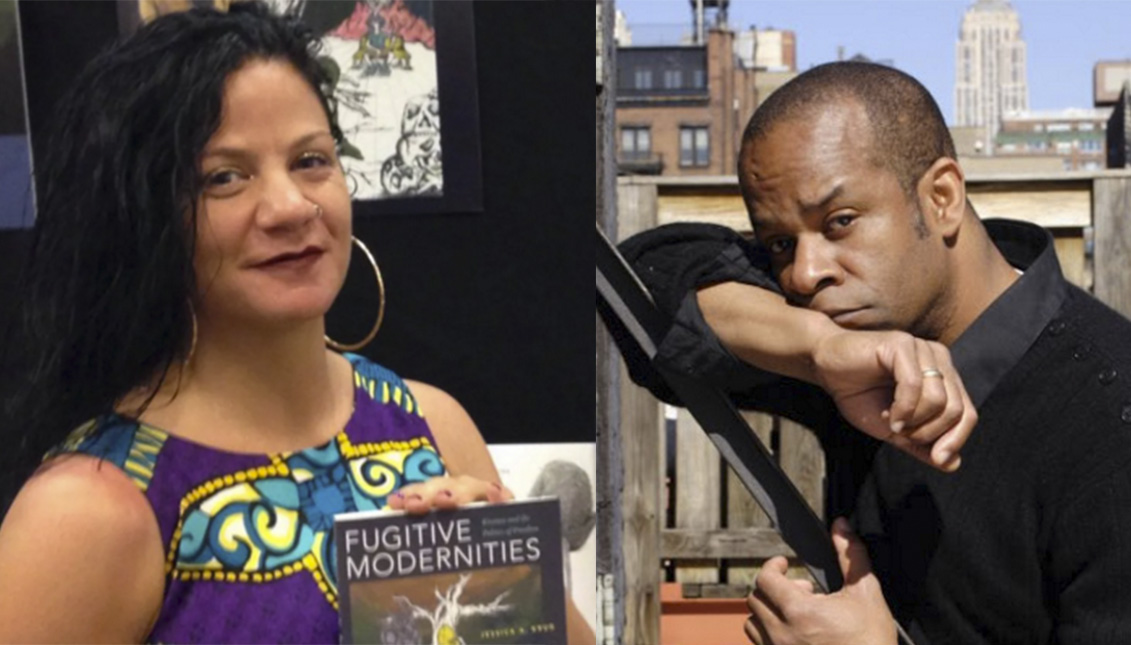
The Prison of Identity: Another Twist in the Case of Jessica Krug, the White Woman Pretending to be Afro-Latina
Sometimes we see the tip of the iceberg, but most of it is submerged. With "impostors," the same thing happens.
How is an 'impostor' created? Most of us have felt like impostors at some point in our lives. There is even an impostor syndrome. But imposing an origin and a race and building a career — which for many is life — on the basis of a lie that is partly genetic and partly cultural seems to us the greatest of deceptions, especially when the impostor in question "takes advantage" of the small quotas of rights and benefits of a historically discriminated community.
Jessica Krug, 38, a researcher and professor of Latin American and African history at George Washington University, has claimed for decades to be an Afro-Latina raised in the Bronx with drug-addicted parents and a brother who was a victim of police violence. But on Sept. 3, Krug — who called herself "Cruz" — confessed on her blog that she had lived a lie since she was a teenager as the result of a childhood trauma she never got over. She revealed she was actually a white Jewish woman born in a suburbs in Kansas who had based her life on the "toxic napalm soil of lies."
The confession caused a great scandal. The university suspended her from her job and she resigned after her department called for her dismissal on the grounds that she had betrayed the trust of many students and former classmates in African studies. The institution's Black Student Union took the opportunity to claim the lack of Black and Latino professors in the campus — only 25% of full-time professors are of color.
Can I really feel part of a community with which I do not share a genetics even though I live within that community as one?
Krug, at the same time, asked to be canceled. It was so. "Black communities do not have an obligation to house the waste of non-black societies. I have done this. I know it's wrong and I've done it anyway," she wrote.
Many people may not care why, but the scam itself and the painful grievance it means to those who have been fighting years for greater visibility and rights. However, what drove Krug/Cruz to invent a life and then defenestrate herself by throwing away her career? Did she feel guilty? Was she caught? Or was it another strand of her mental health problems? Did she have bad intentions from the beginning, or was she trapped in a ball of lies?
Postmodernity has made identity a very abstract question. Are we where we were born or where we grew up? Are we because of the race we belong to — or the races, is our DNA as complex as our heads? Are we who we say we are or who others say we are? Can I really feel part of a community with which I do not share a genetics even though I live within that community as one?
History is full of so-called "impostors".
Carlos Castenada, who was actually born in Peru and wrote The Teachings of Don Juan, built an incredible work based on a life and characters that were invented to the point that his biography is a novel in itself that many still believe to be true. In 2015, Rachel Dolezal, a woman who was born white but identified herself as Black, became president of the local chapter in Spokane, Washington of the National Association for the Advancement of Colored People (NAACP) for more than a year until the lie was exposed. And what about H. G Carrillo? He was born as Herman Glenn Carroll, and based his novels and even his relationships with his partner and friends on the fictional story that he was a Cuban immigrant.
But perhaps the impersonation that helps us better see the complexities of this type of racial "grievance" and impostors as people trapped in a kind of contemporary racial and identity loop is that of actor and theater director, Anthony Ekundayo Lennon.
RELATED CONTENT
It happened in 2018 as the artist was giving a lecture on the performing arts to his students when he received a call from the Sunday Times asking for a statement on a scandal that had him as its protagonist. Lennon had been awarded an 18-month residency at Talawa, one of Britain's best-known Black theater companies.
The theater director Anthony Ekudayo Lennon believed he was African, because he was treated like a mestizo.
But Lennon was white, born into a white family, as he always recognized. Was he taking advantage of an opportunity aimed at people of color? Was he a scammer?
The newspaper accused him of taking funds intended for "people of color." Trevor Phillips, former chairman of the Commission on Equality and Human Rights, told the Telegraph: "We should be doing more to help talented individuals from Black and ethnic minority communities, and we cannot do that if the few opportunities that do exist are directed at whites who identify themselves as something else."
His career was ruined, became an outcast overnight and nearly committed suicide.
Months later, the director decided to tell his story.
Lennon believed he was of African origin. People had always treated him as a half-breed all his life because of his physical appearance. As a child, they would yell at him, "Run, n****."
In the end, he accepted what others saw and shaped his identity accordingly.
Lying is terrible and quite common. Sometimes you don't lie, sometimes you just survive. But not everything is black or white, that is for the race and outside of it, and the reasons why a person assumes another identity in a world where everything should be more fluid, where categories weigh, should be considered. What is behind an imposture? Is it not possible that we end up becoming what we represent?











LEAVE A COMMENT:
Join the discussion! Leave a comment.